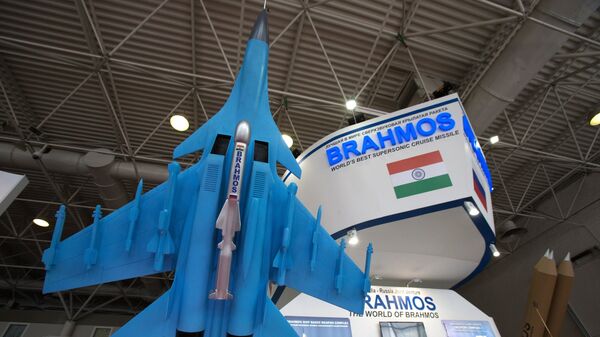NEW DELHI (Sputnik) — As Indian armed forces are hard pressed by dwindling ammunition and weapons stocks, the country's new defense minister has rolled out a set of stringent policies to hasten key defense purchases.
The Defense Acquisition Council (DAC) — India's apex decision making a body for defense purchases — will meet every two weeks to clear projects that are in the pipeline.
"Special emphasis was laid by the Minister on the need to step up the pace of acquisition proposals. Towards ensuring time bound and speedy disposal, it has been decided to hold DAC meetings on a fortnightly basis," a defense ministry statement read.
The defense minister has also started holding daily meetings with the three service chiefs. Indian armed forces are currently challenged by shortage of armored vehicles, fighter jets, warships and ammunition. However, the procurement of advanced weapons systems is also a key agenda in the modernization drive of the country's armed forces. As funds available within the defense ministry are very limited as per the annual procurement plan submitted by the three services, Nirmala Sitharaman needs valuable inputs from the service chiefs prioritizing the requirement.
"Daily morning meetings with the three service chiefs and a separate daily meeting with the Defense Secretary have been formatted as a new practice for quick decision making," defense ministry said in a statement.
The most significant procurement projects that are to be disposed off during Sitharaman's tenure include the selection of close to 120 single-engine fighter jet worth $18 billion and dual-engine fighter jets for the Indian Air Force.
Purchase of naval fighter jets for aircraft carriers has also been set into motion as four foreign companies from Russia, France, America and Sweden have already responded to requests for information issued by the Indian Navy. Sitharaman will have to use her acumen to choose fighter jets worth $12 billion and mine counter measure vessels worth $5 billion for the Indian Navy.
During her short tenure, she will have to give the final stamp of approval for six air-independent propulsion enabled submarines under Project P75I. RFI for the deal worth more than $12 billion was sought from six foreign shipyards, including Rubin Design Bureau of Russia, Naval Group of France, Navantia of Spain, Saab of Sweden, Mitsubishi Heavy Industries of Japan and ThyssenKrupp of Germany in July this year.
Apart from a fresh purchase plan, Sitharaman would have to decide upon other pending deals such as the procurement of S-400 anti-aircraft missile defense systems and the co-production of fifth generation fighter aircraft with Russia.


